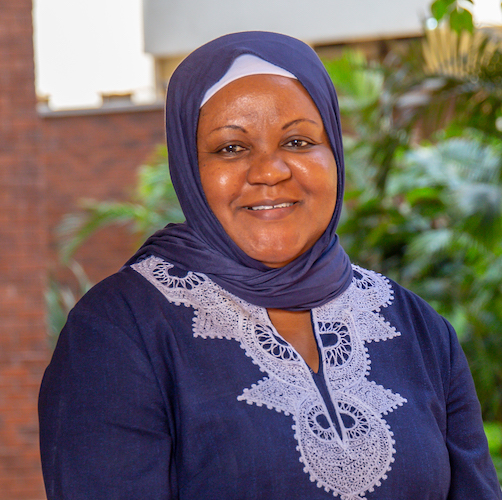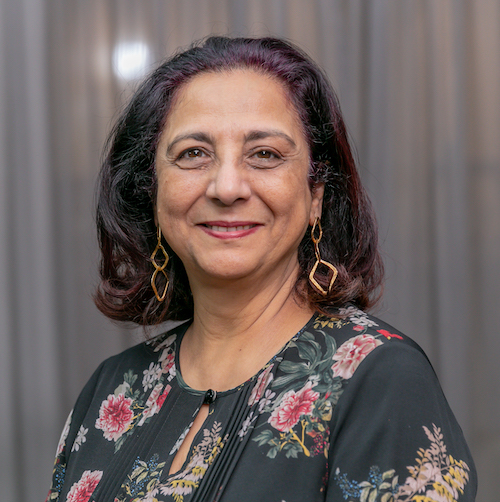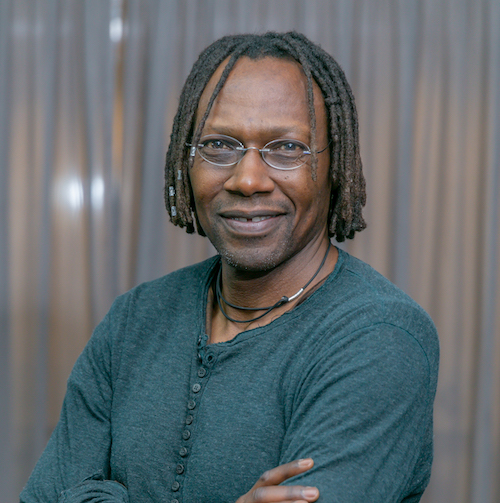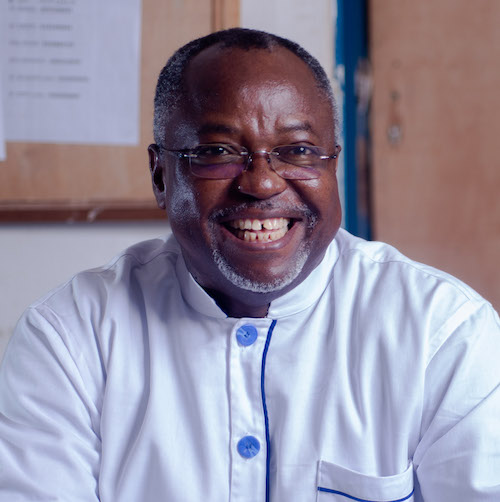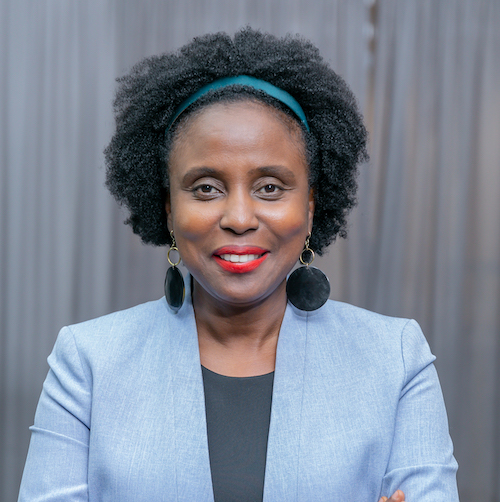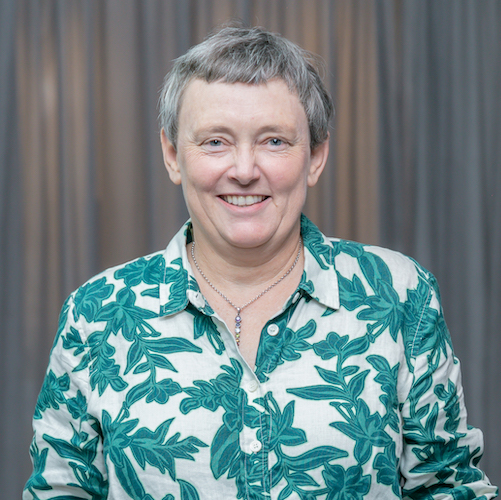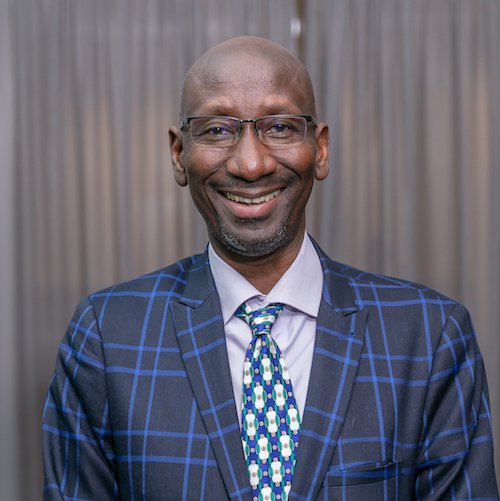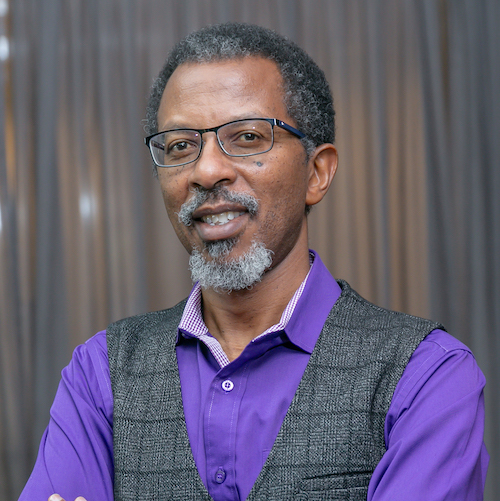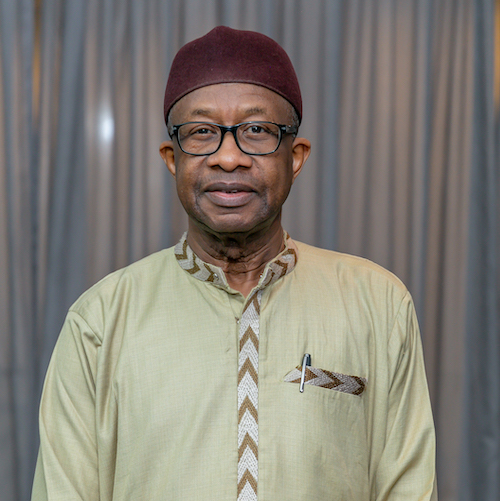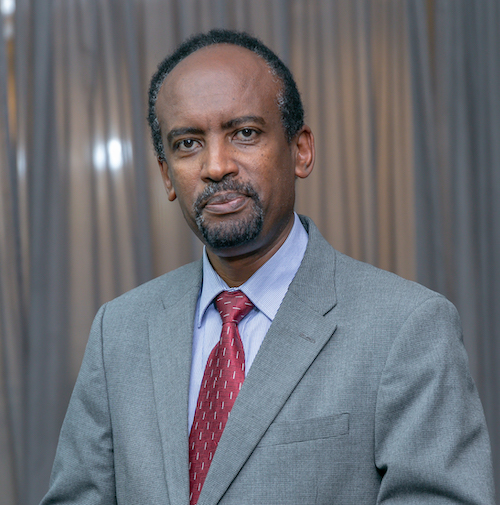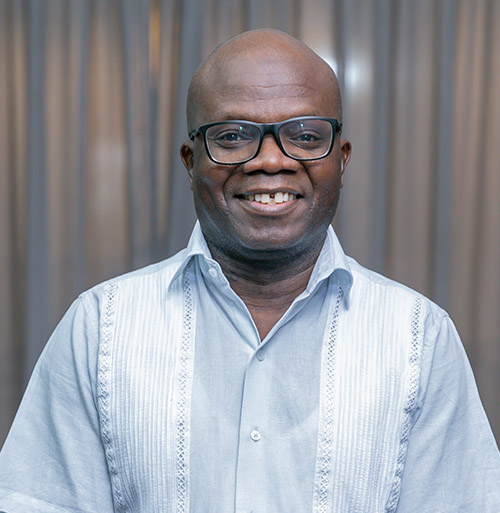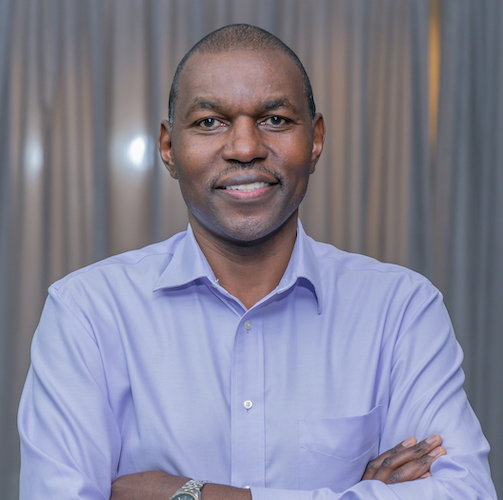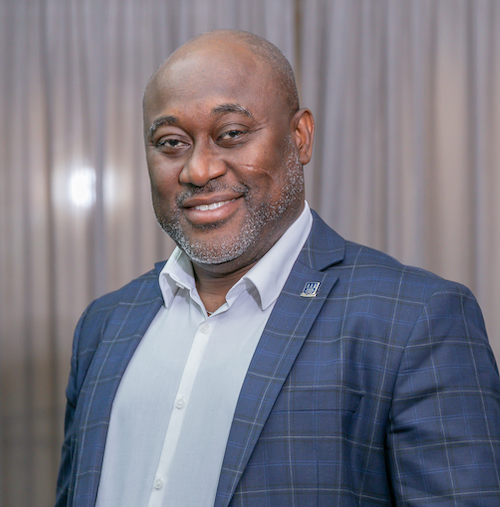
Open Research Africa
Broad science area:
Data, Policy and Open Science
Data, Policy and Open Science | Science Prioritisation & Policy Engagement for Africa (SPEAR) |Open Research Africa
WHAT WE DO
ORAThe SFA Foundation Open Science Initiative specifically aims to support a diverse scientific community tool builders, trainers, and organisations working in support of open-source software and other tools and structures to accelerate our understanding of the three thematic areas of our work of health, climate and Agriculture R&D, and their interconnectedness. Open science makes a difference only when research data is more widely disseminated easier and more equitable. But for researchers in Africa, multiple additional layers, subtle and not so subtle, introduce barriers to research sharing.
The SFA Foundation strongly believes that we must value the importance of open science through open research publishing in an open environment, where sharing is not unnecessarily delayed, ownership rights are retained by authors and transparency prevails throughout the process.
As such, the Science for Africa Foundation community is dedicated to the principles of FAIR (findable, accessible, interoperable, reusable) publishing. Open Research Africa (ORA), a partnership of SFA Foundation and F1000, offers researchers the opportunity to share their findings on a rapid, peer-reviewed, indexed and accessible platform. ORA offers SFA-affiliated researchers a streamlined submission process which supports rapid publication of research outputs, thereby accelerating the dissemination of knowledge and the pace of new discoveries. Open, post-publication peer review promotes understanding of the review and revision process, eliminating unnecessary editorial delays, and removing peer review bias. Once published, all content on Open Research Africa is made available to researchers, patients, teachers, journalists – anyone -- free-of-charge. Research that passes peer review is indexed in major databases such as PubMed and Scopus.
ORA also offers sister research organisations in Africa a dedicated space, Gateways, to share and promote all of their research outputs rapidly and transparently via a bespoke publishing portal. These include the African Excellence Research Fund (AREF) and the African Academy of Sciences (AAS). We are also working with the World Continuing Education Alliance (WCEA) to enable them to provide healthcare professionals with access to relevant research and support their continued professional development (CPD).
Open Research Africa provides support for early career researchers by providing greater visibility and better recognition of their research outputs and enabling submission of a wide diversity of article types, such as method articles, study protocols and software tools. The platform will also provide career development and training tools, resources and events dedicated to themes around open research tailored to the needs of African researchers.
Open Research Africa accepts submissions from all researchers funded by the SFA Foundation, including affiliated researchers of the Wellcome-supported DELTAS Africa and H3Africa initiatives.. African Academy of Sciences (AAS), African Society for Human Genetics (AfSHG), African Population Research Center (APHRC) and African Excellence Research Fund (AREF)-affiliated researchers are also invited to submit.
For more information on Open Research Africa or research sharing at SFA Foundation, visit: here.

Open Research Africa provides greater visibility and better recognition of research outputs from African scientists
How will science policy engagement drive impact:
- If R&I is to deliver maximum impact and positively change the lives of African people and societies, findings from Africa led R&I research programmes should be translated into recommendations that can be implemented within policy and practice in Africa.
- Contribute to efficiency and effectiveness within programmes through best practice.
- Ensure the right questions are formulated, asked, and answered through an African lens.
- Highlight gaps and key points of evidence within context and in an accurate manner to facilitate comprehension and use.
- Promote shared understanding, trust and collaboration for meaningful work that drives change regionally and globally
- Place African experts and policymakers at the centre of science-led policymaking processes in Africa
- Place contextually relevant data and perspectives at the centre of science-led decision-making process in Africa.
Activities being implemented by SPEAR
Artificial intelligence (AI) and Data Science policy gaps from an African perspective. The African STI landscape is witnessing the emergence of AI and Data Science across various sectors. However, for these technologies to have their full positive impact, it is crucial to develop trust among stakeholders and formulate contextualized policies that support their implementation in the region. This grant aims to address these areas by:
- Convening African stakeholders to examine and comprehend the policy gaps in AI and Data Science in global health from an African perspective, focusing on but not limited to genomics, clinical trials/drug development, and epidemics/pandemics.
- In collaboration with African partners, identifying the research and development goals of AI and data science for the betterment of global health from an African perspective.
- Engaging the public on AI and Data Science policy
" If scientific results are not shared broadly, then the societal benefits are significantly limited. We have a responsibility to ensure that policymakers have access to the best, relevant and up-to-date knowledge available. To achieve Africa’s sustainable development goals, it is critical that policy decisions are informed by contextually relevant evidence”. - Uzma Alam, SPEAR programme lead.
Consortia Name: African Leadership for Measuring brain health in children and Adolescents (ALMA)
Country : Kenya
Focus Area: Neuroscience
Understanding early-life brain development within the unique African context creates opportunities for scientific discovery and tailored healthcare. The ALMA integrated neuroscience network proposes to study these strongly interdependent topics within the research-rich environment of its African partners. The network is co-led by two new African-run research institutes, the AKU’s Institute for Human Development in Nairobi, and the UCT Neuroscience Institute in Cape Town.
Three important gaps will be addressed to identify the needs of African children and ensure their optimal development: a dearth of locally generated evidence that would inform locally relevant interventions; a lack of a critical mass of trained people to produce required evidence, and the need to exploit our centres of excellence to equip and train neuroscientists across Africa.
Partners:
University of Cape Town (South Africa), University of Malawi, University of Zambia, University of Oxford (UK), and the Harvard School of Public Health (USA).
Consortia Name: African Leishmaniases Consortium for developing a paradigm for eliminating neglected diseases in Africa (ALC)
Country : Tunisia
Focus Area: Neglected Tropical Diseases - Leishmaniasis
ALC aims to translate advances in sciences including genomics for novel control and surveillance tools and strategies; to leverage the novel control tools to support diagnosis and patient management, and vector control; and to build interactive disease distribution- and predictive risk- maps for programmatic use; to engage strategic research and Think-Tanks to accelerate use of evidence in policy towards control and elimination of leishmaniases.
Partners:
University of Sciences, Techniques and Technology of Bamako (Mali), Armauer Hansen Research Institute (Ethiopia), Pasteur Institute of Algeria, Institut Pasteur of Morocco, Ibn Sina University (Sudan), University of Ibadan Research Foundation (Nigeria) and the Barcelona Institute for Global Health (Spain).
Consortia Name: African Mental Health Research Initiative 2.0 (AMARI II)
Country : Zimbabwe
Focus Area: Mental Health
AMARI-II is a consortium of six African universities dedicated to mental health research capacity building. It will build on the success of AMARI-I by providing fellowships to African mental health scholars with a focus on building excellence in leadership, training and science. AMARI-II seeks to ensure that African scientists become leaders in GMH research, training and implementation aims to shift the centre of gravity in global mental health (GMH). The consortium will be driven by five research areas underpinned by ten cross-cutting themes: youth, gender, ethics, multi-morbidity, suicidal behaviour, COVID-19, complex interventions, mental health systems, climate change and public engagement.
Three important gaps will be addressed to identify the needs of African children and ensure their optimal development: a dearth of locally generated evidence that would inform locally relevant interventions; a lack of a critical mass of trained people to produce required evidence, and the need to exploit our centres of excellence to equip and train neuroscientists across Africa.
Partners:
King's College London (UK), Addis Ababa University (Ethiopia), University of Malawi, University of Zambia, University of Cape Town (South Africa), London School of Hygiene and Tropical Medicine (UK) and the University of Ghana.
Consortia Name: Afrique One Research Excellence for African Challenges in Health (Afrique One-REACH)
Country : Ivory Coast
Focus Area: One Health
Afrique One-REACH is addressing the lack of sufficient capacity and data in Africa to develop and implement transdisciplinary approaches to combatting some of the world’s most urgent and challenging health threats arising from interactions among people, animals and the environment, including Endemic and Emerging Zoonoses, Neglected Tropical Diseases (NTD) and nutritional and Non-Communicable Diseases.
Through transdisciplinary research, REACH will jointly assess, co-design and test health intervention options in close collaboration with practitioners, communities, civil society and policy makers. As a follow up to Afrique One-ASPIRE, we will support a cohort of 50 competitively and equitably selected fellows to be equipped with contemporary and innovative research tools while working in supportive and empowering research environments. We will work with African and northern partners to develop the next generation of research leaders who can harness the potential of One Health in Africa.
Partners:
Noguchi Memorial Institute for Medical Research (Ghana), Université de Liège (Belgium), Sokoine University of Agriculture (Tanzania), Kilimanjaro Clinical Research Institute (Tanzania) and the Swiss Tropical and Public Health Institute (Switzerland).
Consortia Name: Cascading Climate and Health Risks in Cities (CASCADE)
Country : South Africa
Focus Area: Climate and Health
The CASCADE programe strengthens existing networks (e.g., FRACTAL) and builds new partnerships to improve understanding of the interlinkage and, often, cascading nature of climate health risks in African cities through integrating climate and public health sciences with other physical and social sciences to build rich disciplinary evidence. This evidence will be generated through strong engagement with city partners, including city governments, health care and delivery organisations, city agencies responsible for air quality monitoring, disaster risk management, water and sanitation services and others.
Partners:
Red Cross Red Crescent Climate Centre (Netherlands), University of Ghana, African Population & Health Research Centre (Kenya), Chinhoyi University of Technology (Zimbabwe), International START Secretariat (USA), the University of the Witwatersrand (South Africa) and Makerere University (Uganda).
Consortia Name: Consortium for Advanced Research Training in Africa 2021-2025 (CARTA2025)
Country : Kenya
Focus Area: Multi-sectoral Health R&D and Health Systems
High-quality research capacity is key to addressing the many developmental challenges facing African countries. These challenges include but are not limited to the triple burden of infectious disease, non-communicable disease (NCDs) and injuries; emerging epidemic pathogens; antimicrobial resistance (AMR); over-burdened and dysfunctional health systems; climate change and other social challenges. All these impede human, economic, and social development. CARTA2025 seeks to address inter-related questions of how to promote health, improve health systems and scale up successful interventions using broad multidisciplinary approaches as it strengthens its host institutions, from their human capital to the support systems that are required for a research-conducive environment.
Partners:
University of Witwatersrand (South Africa), University of Nairobi (Kenya), Makerere University (Uganda), University of Malawi, Ifakara Health Institute (Tanzania), University of Ibadan (Nigeria) and the University of Rwanda.
Consortia Name: Critical Zones Africa South & East (CzASE)
Country : South Africa
Focus Area: Climate Change
All too often, profit-driven climate solutions make people poorer. It naturally follows therefore that global climate solutions are rendered in terms of finance and geopolitical boundaries and can have unintended consequences. For example, commercial resource solutions result in profit to private shareholders rather than building a collectively owned infrastructure. How can research advance an African ecological policy of habitability that builds on local knowledge of how a landscape works and builds a local resource that serves everyone at the lowest possible cost?
CzASE will conduct comparative studies at three sites of about 50x50km in six countries: Ethiopia, Tanzania, Malawi, Zimbabwe, Mozambique, and South Africa.
Partners:
Addis Ababa University (Ethiopia), Lilongwe University of Agriculture and Natural Resources (Malawi), University of Zimbabwe, University of Dar es Salaam (Tanzania), Universidade Eduardo Mondlane (Mozambique) and the Human Sciences Research Council (South Africa).
Consortia Name: Developing Excellence in Leadership and Genomics Training for Malaria Elimination and Antimicrobial Resistance control in Africa (DELGEME Plus)
Country : Mali
Focus Area: Malaria Elimination & Antimicrobial Resistance
DELGEME PLUS will build on the training and capacity development we did in genomics during DELTAS 1 to continue addressing major problems in malaria. We will conduct cutting-edge research to understand how the microbes that cause malaria and other diseases become resistant to drugs, how we can prevent the development of this resistance and invent or discover new drugs that will effectively kill the microbes. We will achieve these through training young scientists to become specialists who will produce new knowledge on AMR and through engaging doctors, health officials and communities to improve their behaviour in antimicrobial use.
Partners:
Universite des Sciences de la Sante (Gabon), Noguchi Memorial Institute for Medical Research (Ghana), Kenya Medical Research Institute, Medical Research Council Unit (Gambia), University of Ibadan (Nigeria) and Stellenbosch University (South Africa).
Consortia Name: Initiative to Develop African Research Leaders (IDEAL)
Country : Kenya
Focus Area: Multi-Disciplinary Infectious Diseases Research
IDEAL’s vision is for African-led research teams to solve African health problems. To achieve this, we focus on three objectives: Find solutions to the major causes of childhood and adult morbidity and mortality in Africa, build sustainable research capacity in Africa through the creation of a critical and diverse mass of African researchers who can drive the continent’s research agenda and enhance intra-Africa research collaborations.
Partners:
Centre for Infectious Disease Research in Zambia, Epicentre (Niger), Pwani University (Kenya), Strathmore University (Kenya), University of Glasgow (UK) and the University of Oxford (UK).
Consortia Name: Malaria & Neglected Tropical Diseases Research Capacity Development in West and Central Africa (MARCAD-Plus)
Country : Senegal
Focus Area: Malaria and Neglected Tropical Diseases
MARCAD-Plus will build on the successes of MARCAD-1, continuing the successful Masters, PhD and post-doctoral programs by training the next generation of African research leaders in malaria and neglected tropical diseases. The Consortium maintains high-quality research which seeks to eliminate malaria and selected NTDs within the context of climate change, rapid urbanization, increasing population movements and the COVID-19 pandemic.
Partners:
Medical Research Council Unit (The Gambia), MRTC/Icermali/ USTTB (Mali), Bandim Health Project (Guinea Bissau), University of Sierra Leone, University of Health and Allied Sciences (Ghana), University of Yaoundé 1 (Cameroon) and the Centre for Research in Infectious Diseases (Cameroon).
Consortia Name: Research and Excellence in African Capacity to Control and Treat Cancer (REACCT-CAN)
Country : Ethiopia
Focus Area: Cancer R&D
REACCT-CAN is dedicated to strengthening African institutions and networks for cancer research and to training a large cohort of African cancer scientists with the mission to generate collaborative African-led, African-relevant multidisciplinary research of international standing in oncology and cancer sciences in Africa. We will provide post-graduate training for 87 young African researchers in cancer prevention and care. Researchers will form teams across institutions to complement their strengths and build international networks.
Partners:
Cairo University (Egypt), Wits Health Consortium (Pty) Ltd (South Africa), Martin-Luther-University Halle (Saale, Germany), World Health Organization (Switzerland), and the Kilimanjaro Clinical Research Institute (Tanzania).
Consortia Name: Sub-Saharan Africa Consortium for Advanced Biostatistics training (SSACAB II)
Country : South Africa
Focus Area: Biodata for Population Health
There is a need to provide solutions to major public health, environmental and health system challenges in Africa through cutting-edge biostatistical methodology and contribute towards achievements of SDG3 ‘Ensure healthy lives and well-being for all’. SSACAB-II will build regional nodes of biostatistics research excellence, effectively collaborating and integrating with other consortia and research institutions in sub-Saharan Africa.
Partners:
University Medical Center Utrecht (Netherlands), University of Abomey- Calavi (Benin), Kenya Medical Research Institute, South African Medical Research Council, University of KwaZulu-Natal (South Africa), Moi University (Kenya) and the London School of Hygiene and Tropical Medicine (UK).
Consortia Name: Sub-Saharan African Network for TB/HIV Research Excellence (SANTHE 2.0)
Country : South Africa
Focus Area: HIV & TB Research
SANTHE is a multidisciplinary consortium of African-led research and capacity strengthening leading locally relevant discovery and policy-impacting science in Africa and globally. Given the widespread roll-out of antiretroviral treatment (ART) and an ageing population of people living with HIV, the long-term use of ART will shape the incidence and management of NCDs in sub-Saharan Africa. We believe that to tackle these public health challenges, collaborative, multidisciplinary research that includes the social sciences, clinical research and biomedical sciences is needed. Each partner site brings focused research strengths and needs aligned to SANTHE’s thematic areas of research -- amplifying the effectiveness of the individual research teams.
Partners:
Botswana Harvard AIDS Institute Partnership, Collaborative Clinical Research Centre (USA), Zambia Emory HIV Research Project, Makerere University (Uganda), KEMRI-Wellcome Trust Research Programme (Kenya) and the Center of Research for Emerging and Re-Emerging Diseases (CREMER, USA).
Consortia Name: West African Centre for Cell Biology of Infectious Pathogens (WACCBIP DELTAS II)
Country : Ghana
Focus Area: Mechanisms of Pathogen Diseases & NCDs
The unifying goal of the WACCBIP DELTAS II consortium is to use deep research approaches to gain a thorough understanding of the disease mechanisms for some of the major infectious and non-communicable diseases affecting African populations. WACCBIP’s DELTAS II programme seeks to build on its successes by providing high quality training and advanced research on the mechanisms underlying the development of infectious diseases (IDs) and non-communicable diseases (NCDs).
WACCBIP has assembled a top-class team of scientists from institutions in Africa, Europe and the United States to conduct high-quality research and training for young African scientists. Our team seeks to address the double threat of IDs and NCDs facing Africa, by providing advanced laboratory-based research and training to build the skills necessary for effective disease surveillance, control of drug resistance, development of new diagnostic tools, drugs and vaccines, and characterization of genetic predictors of risk of NCDs.
Partners:
University of Cambridge (UK), London School of Hygiene & Tropical Medicine (UK), University of Liberia, Francis Crick Institute (UK), Medical Research Council Unit (The Gambia), University of Lagos (Nigeria), John Hopkins University (USA).
